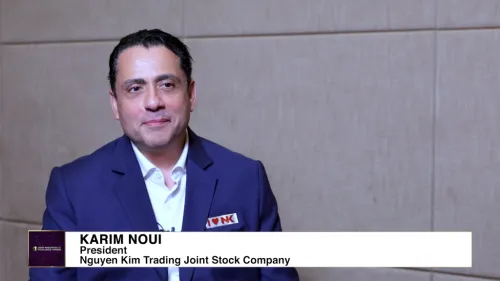
Legal Briefing: The ‘Stay Rules’ are here to stay
And what it means for authorized institutions.
The Financial Institutions (Resolution) (Contractual Recognition of Suspension of Termination Rights—Banking Sector) Rules or Stay Rules went into operation last 27 August.
According to a report by Moody’s, under the Stay Rules, entities covered must ensure that covered contracts include a term or condition that the parties legally agree in an enforceable manner that they will be bound by any suspension of termination rights in relation to the contract imposed by Hong Kong Monetary Authority (HKMA) under section 90(2) of the Financial Institutions (Resolution) Ordinance (Cap. 628).
This also applies to newly entered covered contracts or existing covered contracts that are renewed or materially amended.
In addition, HKMA and the Securities and Futures Commission (SFC) issued conclusions of a joint consultation on the annual update to the list of financial services providers under the over-the-counter (OTC) derivatives clearing regime in Hong Kong.
After considering market feedback, HKMA and SFC proceeded with the proposed changes to the list as set out in the joint consultation paper. The list includes entities that belong to a group of companies appearing on the list of global systemically important banks (G-SIBs) or on the list of dealer groups that undertook the OTC Derivatives Supervisors Group to work collaboratively with central counterparties, infrastructure providers, and global supervisors to continue to make structural improvements to the global OTC derivatives markets (G15 dealers).
Giving a more clear explanation, the international law firm, Clifford Chance, published a report on the Stay Rules. It says that the purpose of the Stay Rules is to ensure that resolution actions taken by a regulator of a distressed financial institution are not inhibited.
The Stay Rules apply to the following:
- an authorized institution (AI) incorporated in Hong Kong;
- an entity that is a holding company incorporated in Hong Kong of an AI incorporated in Hong Kong, but is not itself an AI (HK Holding Company);
- a group company of an AI incorporated in Hong Kong, that is not itself
- an AI incorporated in Hong Kong or an HK holding company (Related Company).
Covered contracts
The report explained that the Stay Rules define a "covered contract" in respect of a covered entity that is an AI incorporated in Hong Kong or an HK Holding Company, is a financial contract which (a) is entered into by the covered entity; (b) is governed by non-Hong Kong law; and (c) contains a termination right exercisable by a counterparty (other than an Excluded Counterparty).
“An additional criterion for a covered contract in relation a related company is that the contract contains obligation(s) of such entity that are guaranteed or otherwise supported by an AI incorporated in Hong Kong or an HK Holding Company, that is a member of the same group of companies as that related company,” the report explained.
The Stay Rules define a "financial contract" as one or any combination of:
- A securities contract;
- A commodities contract;
- A derivatives contract;
- A currency contract;
- A contract of similar nature to a contract mentioned above or;
- A master or other agreement in so far as it relates to any contract above.
However, it does not include a contract or combination of contracts for short-term interbank borrowing with an original maturity of three months or less.
Implementation
Clifford Chance clarifies that the Stay Rules provide an initial implementation period for covered entities to comply with the requirement of ensuring that a suspension of termination rights provision is contained in covered contracts.
“With respect to covered contracts, the counterparties to which are solely (a) an AI; or (b) a FI (which is not an AI) that is a global systemically important bank on the implementation day, the implementation period will be 24 months, and for any other covered contracts, the implementation period will be 30 months,” the report said.
The Stay Rules will also give HKMA powers to extend the implementation period for a covered entity to comply with, and to exempt a covered entity from complying with the requirements to ensure that a suspension of termination rights provision is contained in one or more covered contracts if the HKMA is satisfied that it is prudent to do so.
This allows HKMA to have better flexibility when needed.
“With the Stay Rules becoming effective on 27 August 2021, AIs should immediately consider how to systematically implement the requirements under the Stay Rules. This might require a detailed examination of the AI's compliance systems to ensure that the requisite covered contracts are identified and the relevant contractual stay language prepared,” Clifford Chance advised.


















 Advertise
Advertise






